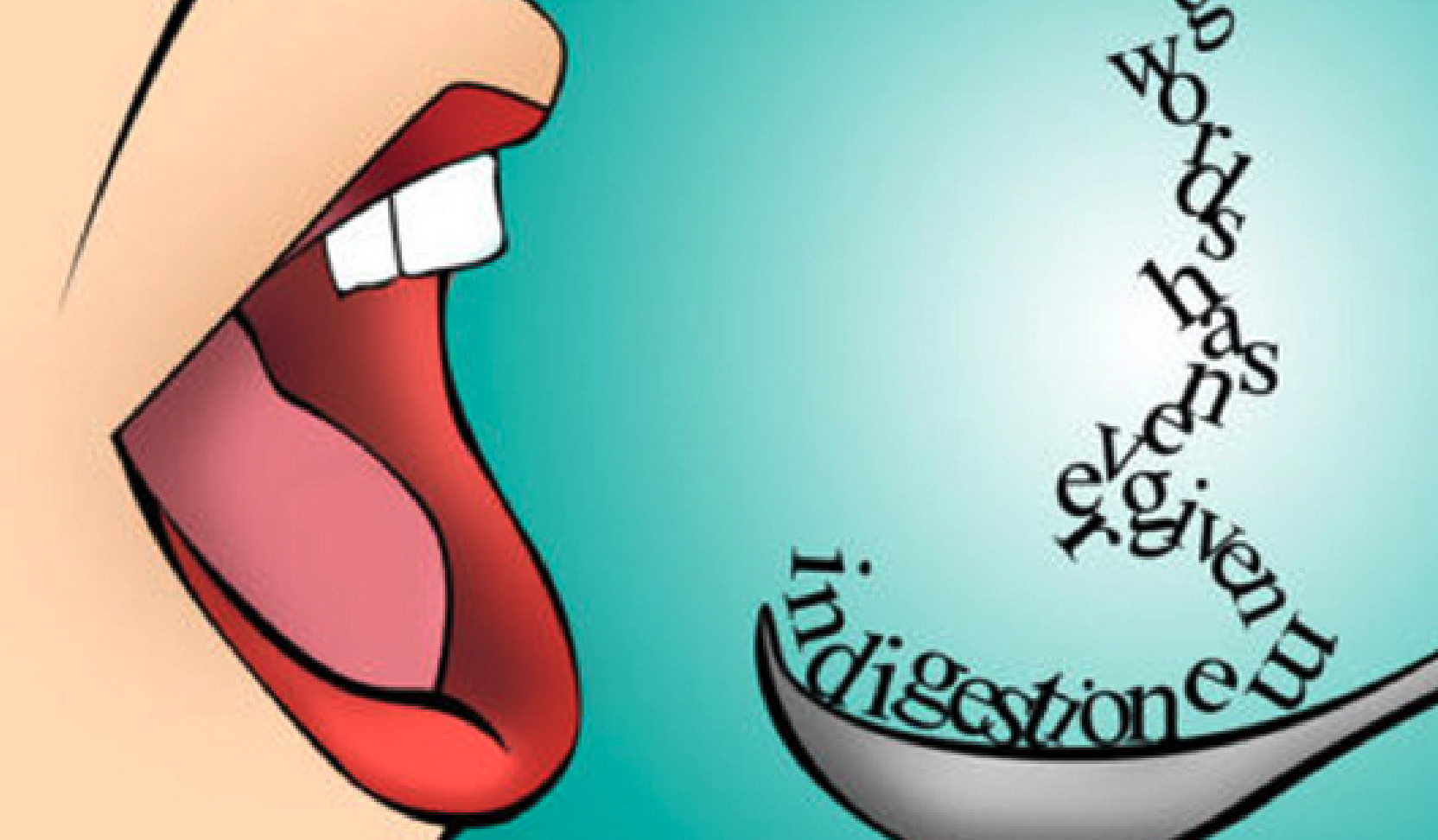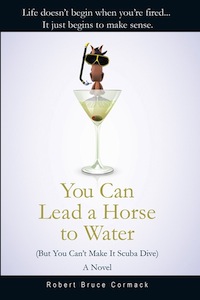Do Your Words Taste Good?
You'd have to be a synesthete to know (which most of us aren't).

“Bad taste creates more millionaires than good taste.” Charles Bukowski
Did you know some people can taste words? I say “some” because I’m not one of them. My tastebuds couldn’t tell a word from a wombat. For all I know, words taste like cornflakes (which is better than wombat, I guess).
Anyway, these people are known as synesthetes, meaning they can tell a good-tasting word from a bad one.
The actual term is synesthesia, a neurological condition where senses are joined that aren’t usually connected. Numbers, for instance, might have colours, music might have letters, and paint might have sounds.
A synesthete simply tastes the stupid thing.
This could come in pretty handy for writers. Who hasn’t pulled their hair out trying to find the ideal word or perfect turn of phrase?
A synesthete simply tastes the stupid thing.
That got me thinking about all the famous artists—past and present—who could’ve been (or are) synesthetes. Maybe the clues were there all along. Maybe I didn’t notice because I was too busy focusing on style instead of licking the page now and then.
Charles Bukowski was always drawing analogies with food. When he finished a good day’s work, he felt he’d eaten a full meal. He’d light a cigar, pour some wine, and pat his stomach. Of course he was full. He’d been eating words.
He once described in a short story how Camus reminded him of a man sitting down to a good steak. In a way, he was circling around this whole synesthesia idea without knowing it (no doubt Camus was in the same boat).
In Hemingway’s “A Moveable Fast,” he describes finishing his writing for the day, and then stuffing himself with oysters at a local restaurant. He and his wife were living in a coldwater flat, surviving on Hadley’s earnings from piano lessons. And he’s eating oysters?
When I finish writing I eat a cheese sandwich.
Unlike many artists of the time, Garcia knew he had synesthesia. He explained to Rolling Stone back in the late 90s how he could taste notes.
Another synesthete was Jerry Garcia, guitarist and songwriter for The Grateful Dead. Unlike many artists of the time, Garcia knew he had synesthesia. He explained to Rolling Stone back in the late 90s how he could taste notes.
Garcia had an addictive personality, indulging in psychedelics, heroin — any number of drugs — but his biggest craving was music. It made his tastebuds water, and his catalogue proved it. In addition to thirteen Dead studio albums, nine contemporary live albums and six solo albums, he can also be heard on 50 side projects, including Ornette Coleman’s Virgin Beauty.
Consuming notes, and tasting each one, kept Garcia busy. Some of his longer solos must have felt like gorging.
A pretty healthy way to gorge, if you ask me.
It probably worked the same for many jazz artists. In every composition or recording, they reached that sense of fullness.
Then there’s Charlie Parker’s excessive consumption. He couldn’t stop himself, whether it was food, music or heroin. Every note he played reminded him of eating, and every shot of heroin heightened his sense of taste.
It probably worked the same for many jazz artists. In every composition or recording, they reached that sense of fullness. It was profound and kept them addicts and possibly synesthetes.
Ray Bradbury once said he could look in the mirror and feel happy. “Why am I so happy?” he asked. Maybe he was a synesthete, too. When he wrote, he felt satisfied by something, possibly the aroma of his words. Writers often mention a heightened sense of smell when they work.
And that’s not forget Picasso. In 2008, noted scholar, Marie-Laure Bernadac, wrote that Picasso may have suffered from “acute pictorial cannibalism,” meaning he ingested the work of others as a gesture of respect and even love.
Except there actually wasn’t any love or respect.
If there’s a fine line between a plagiarist and a synesthete, Picasso certainly crossed it more times than most. Perhaps he was just hungry.
Picasso stole liberally from African art, specifically the Makonde people, without ever giving them any credit. In fact, he and another European artist, Braque, were quite happy learning they were the inventors of Cubism.
Considering the Makonde had been practising Cubism for hundreds of years, that was a serious snafu, and not one Picasso felt like correcting.
If there’s a fine line between a plagiarist and a synesthete, Picasso certainly crossed it more times than most. Perhaps he was just hungry.
Needless to say, I’ve only skimmed the surface here. Synesthesia isn’t an easy topic to button down. Neither is Bukowski or Bradbury or Picasso (don’t get me started on Jerry Garcia). These synesthetes had an advantage. They knew what tasted good and what didn’t.
Nobody writes as much as him (Garcia) without having a heightened sense of taste.
Frankly, I feel at a loss. If all these artists either tasted or heard their art, I’m at a distinct disadvantage. I’ve been concentrating on style when I just’ve eating—or at least licking.
I’m sure Stephen King must be a full-fledged word-licker. He probably savours every word he writes. Whereas I—and probably you—wouldn’t know the difference between a succulent noun and a tasty adjective.
It’s grossly unfair, and I’m sure the Makonde people feel the same way. Imagine picking up the newspaper one morning, and reading that Picasso’s “Nude, Green Leaves and Bust,” —which he painted in one day—recently sold for $106.5 million.
That’s what being a synesthete gets you, folks.
As for the rest of us? We’ll just have to accept the words we create with no taste, or numbers or colours to help us along.
It sucks, sure, but that’s the way of the universe.
“Then that’s got shall get,” Billie Holiday once sang, and that honestly and truly ain’t us.
Robert Cormack is a satirist, novelist and blogger. His first novel “You Can Lead a Horse to Water (But You Can’t Make It Scuba Dive)” is available online and at most major bookstores. Check out Robert’s other articles and stories (absolutely free) at robertcormack.net

in Engaged Readers and in 2 more groups
Articles from Robert Cormack
View blog
It's a dog's life. Even dogs know that. · “If it wasn’t for received ideas, the publishing industry ...

This could (and should) change your writing entirely. · “It’s better to fail at originality than suc ...

Fuck. · “I thought about reading a poem by Shakespeare, but then I thought, why should I? He never r ...
Related professionals
You may be interested in these jobs
-
administrative assistant
Found in: Talent CA 2 C2 - 6 days ago
Eldorado Canada Consulting Visa et Immigration INC. Montreal, CanadaEducation: Secondary (high) school graduation certificate · Experience: 1 year to less than 2 years · Tasks · Arrange and co-ordinate seminars, conferences, etc. · Assign, co-ordinate and review projects and programs · Determine and establish office procedures and routines · Sche ...
-
excavating machine operator
Found in: Talent CA 2 C2 - 3 days ago
GL Excavating Ltd. Surrey, CanadaEducation: · Expérience: · Education · Secondary (high) school graduation certificate · Work site environment · Outdoors · Work setting · Various locations · Tasks · Operate heavy equipment · Read and interpret blueprints, maps, drawings and specifications · Measure distance, v ...
-
babysitting caregiver
Found in: Talent CA 2 C2 - 8 seconds ago
Sonia Sharma Loveleen Sharma Toronto, CanadaEducation: Secondary (high) school graduation certificate · Experience: 1 to less than 7 months · or equivalent experience · Work setting · Employer's home · Tasks · Assume full responsibility for household in absence of parents · Perform light housekeeping and cleaning duties · ...




Comments
Robert Cormack
2 years ago #6
It also helps if you have a good sense of smell.
Pascal Derrien
2 years ago #5
Tasty article I know its easy … :-)
Robert Cormack
2 years ago #4
Get them all fixed, Ken. Can't hurt.
Ken Boddie
2 years ago #3
I hunger for more on this subject, Rob. 😂 Incidentally, I’ve been told I have poor taste in music. Not sure what I should get fixed … my synesthesia or my synthesiser. 👅🎶
Robert Cormack
2 years ago #2
I know the word “caramel” does it for most of them. “Tampons,” not so much.
Lada 🏡 Prkic
2 years ago #1
Interesting topic, Robert! I've heard about synesthesia but didn't know that some synesthetes can "taste" words even before they speak them. I can't even imagine what it looks like to feel the taste while reading.
I wonder what words give them a sensation of something really unpleasant. I cannot even imagine that life, but I'm sure that synesthetes think the same about all of us who feel words as tasteless.
It would be great to know if the words we wrote are tasty. :)